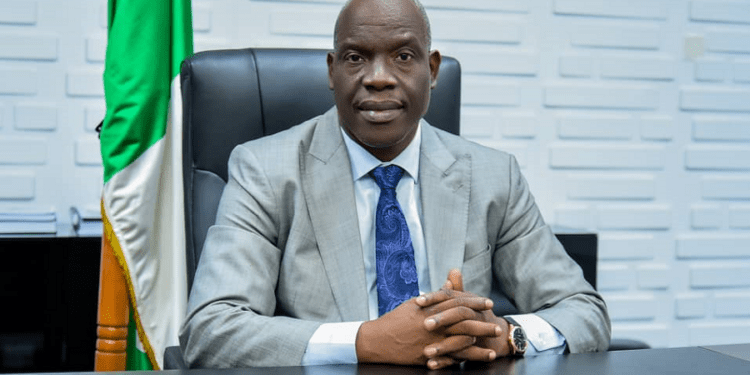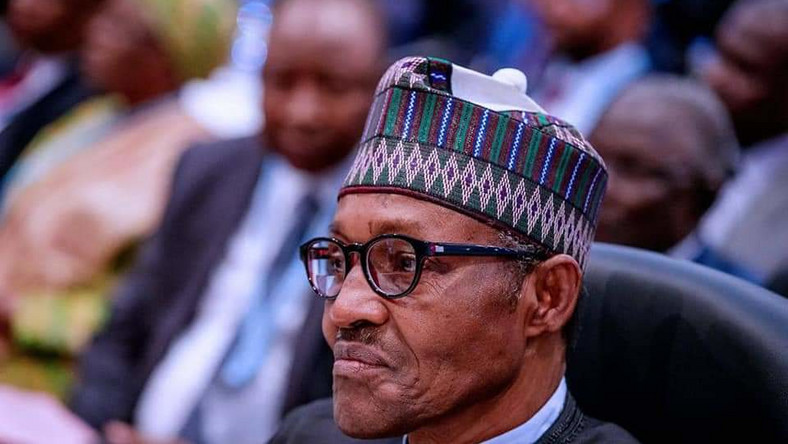The alarming spate of oil theft, underproduction, among others are part of the worries of the Nigerian Upstream Petroleum Regulatory Commission (NUPRC). At different fora, NUPRC has stressed the need for the declaration of emergency on the nation’s oil and industry.
The Nigerian Upstream Petroleum Regulatory Commission (NUPRC) some time in June said it has developed key initiatives aimed at reducing crude oil theft and illegal artisanal refining.
Gbenga Komolafe, chief executive officer, NUPRC, believes this menace has eaten deep into the fabrics of the Nation’s Oil industry.
Komolafe said Nigeria lost at least $1 billion in the first quarter of 2022 due to oil theft. According to him, an unusual level of theft estimated at a daily average of 103,000 barrels which was recorded in 2021 had grown to 120,000 barrels in the first quarter of 2022.
He also said the daily average production in 2021 stood at 1.5 million barrels while the national production advised by the commission was 2.2 million barrels.
“Consequently, only 58 percent of the technical rate was achieved in 2021 and similar performance has continued in 2022 hence the need for more concerted efforts across all quarters to stem the tide,” he said.
“Unfortunately, the amount of oil received at the terminals indicates that over one million barrels of oil are lost to crude oil theft, amounting to a loss of $1 billion in the first quarter of 2022.”
The Chief Executive Officer of NUPRC, Mr. Gbenga Komolafe believes that the resolution of security challenges in the nation’s oil sector would bring back investments into the industry. The CEO further said the effect of this level of theft had resulted in the declaration of force majeure, shortage of wealth, a hostile, unsafe environment, and was a disincentive to investors in the Nigerian upstream sector.
He added that many operators had deliberately shut down facilities and pipelines which further aggravated the low oil production and also impacted gas production both for domestic utilisation and exports.
Komolafe, who believes that apart from the current threat of energy transition to the oil and gas industry, believes the challenges of seamless production in the form of rampant crude theft and sabotage of critical infrastructure were still with the country despite several efforts made by the commission and the government.
The commission under his supervision is committed to ensuring a predictable and conducive regulatory environment at all times in the Nigerian upstream sector. The commission is equally utilising a public enlightenment campaign to educate citizens on the dangers associated with crude oil theft and pipeline vandalism, in collaboration with relevant agencies such as the National Orientation Agency (NOA).
As a developing country with an economy that is dependent on hydrocarbon resources, NUPRC envisaged that a gradual and more flexible approach would be required in achieving the net-zero carbon target.
This informed the adoption of natural gas where Nigeria has reserves in excess of 208 trillion cubic feet (tcf) which could easily be exploited and utilised as the country’s energy transition fuel, while still maintaining the goals of the Paris Agreement and the Conference of Parties (COP26) aimed to achieve zero emission by the year 2060.
In line with the provisions of the Act, several stakeholder engagements were held to get the buy-in and sensitise the industry player on the proposed regulations. The Commission under Komolafe has issued six priority regulations comprising of: Nigeria Upstream Host Communities Development Regulations, Nigeria Upstream Fees and Rents Regulations, Nigeria Royalty Regulations, Conversion and Renewal Regulations, Domestic Gas Delivery Obligations Regulations and Licensing Round Regulations.
The Commission is also in the process of issuing additional seven Regulations in the Phase II of the exercise in consultation with stakeholders in line with Section 216 of the PIA.
As a reminder, Section 92 of PIA 2021 provides a flexible tool for honouring investment guarantees and contract sanctity. This has created the much desired stability and predictability for the Nigerian oil and gas industry to excel and enable existing pre-PIA businesses to succeed. The generous fiscal terms consciously enshrined in the PIA are also targeted towards bolstering return on every dollar invested in Nigeria as against any other jurisdiction.
In consonant with the statutory regulatory mandates of the Nigerian Upstream Petroleum Regulatory Commission, the Act empowers the Commission on technical and commercial regulation of the Upstream petroleum activities in a manner to ensure sustainable hydrocarbon exploration and production at optimum cost, dealing with issues of environmental remediation, decommissioning, and abandonment, and setting up of Host Community Development Trust (HCDT).
The marginal fields award initiative of the government was borne out of the need to establish the indigenisation policy in the upstream sector of the oil and gas industry and build local content capacity.Beside these, it was also targeted at creating employment opportunities and encouraging increased capital inflow to the sector.
On security, resolving the security challenge confronting the industry in the Niger Delta would bring back investments to the sector. All hands must be on deck, while every relevant stakeholder works together to address the issue of oil theft which he noted was hindering Nigeria’s ability to meet its Organisation of the Petroleum Exporting Countries’ (OPEC) quota.
The imperative is on Nigeria to declare some sort of emergency for the oil and gas industry. Aside from energy transition, other issues bedevil our industry — such as oil theft, security, ageing and decaying infrastructure, amongst others.
All these contribute to high production costs, which must be minimised. The commission, in line with the spirit of the PIA, will champion urgent access to the industry for all serious-minded players so that unexplored reserves can be tapped into to derive value for investors as well as for Nigeria.
The agency’s engineering and facilities team have continued to advance and encourage life extension of brownfield assets to extract further value from them, adding that given that most projections foresee oil and gas to be a significant part of the global energy mix, even up to 2050, all hope was surely not lost.
Exploiting the country’s reserves would help Nigeria achieve some progress with empowering the citizenry, while the country braces up for the inevitable transition to renewable energy sources.
Meanwhile, he said the commission has made efforts to tackle these challenges faced in the oil sector and enable the industry to deliver a production target of three million barrels daily in three years.
The initiatives are also aimed at mitigating oil theft and creating an enabling regulatory environment for local refining in Nigeria.
Under Komolafe, the commission had developed some key initiatives aimed at reducing the oil theft menace to the barest minimum in the short run, and eventual elimination in the long run.
Such initiatives, known as the roadmap for tackling the security challenges in the industry through identification and implementing areas of collaboration between the government and operators and ensuring that operators realise their full production potential.
Others are liaison with the top echelon of Nigerian security forces for a robust security framework that ensures government security forces provide pipeline and asset security; and to promote the implementation of Nodal surveillance technologies on the main trunk lines at each manifold for real-time loss detection that would enable swift and more proactive responses.
The commission is also promoting the implementation of modern security technology for real-time loss detection that would enable swift and more proactive responses.
“We also advocate a refinery regulation in terms of establishment of more modular refineries to curb activities of artisans from refining crude which is outside the ambit of the law and absolutely below acceptable minimum standards of technology in the 21st century”, he said at a gathering.
Recently, the Nigerian Upstream Petroleum Regulatory Commission (NUPRC) reacted to the statement from the presidency earlier in the day, in which President Muhammadu Buhari granted ministerial consent regarding the $1.283 billion Mobil-Seplat deal.
But NUPRC Chief Executive, Mr Gbenga Komolafe, in a statement he personally signed last night affirmed the commission’s position on the matter, insisting that as the upstream regulatory body, its announcement a few months ago declining consent to the deal still stands.
“The NUPRC affirms that the status quo remains in respect of ExxonMobil/Seplat Energy share acquisition.
“Responding to media enquiries on latest development about the transaction, the Chief Executive of the NUPRC, Gbenga Komolafe, clarified that the commission in line with the provisions of the Petroleum Industry Act (PIA) 2021 is the sole regulator in dealing with such matters in the Nigerian upstream sector.
“As it were, the issue at stake is purely a regulatory matter and the commission had earlier communicated the decline of ministerial assent to ExxonMobil in this regard. As such the commission further affirms that the status quo remains,” the NUPRC statement said.
Olamide Adeniji is a member of the editorial team of TheScript Newspaper




